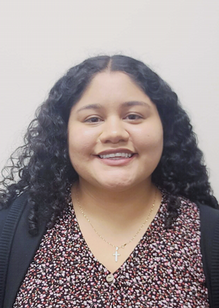Environmental Compliance keeps our environment – and ourselves – safe from a variety of pollutants, toxins and hazardous waste commonly found in labs, classrooms and even our homes.
Stormwater
Following rainfall, stormwater runoff can pick up pollutants on the ground – such as oil, grease, human and animal waste and toxic materials – and carry them into our lakes streams and rivers, either directly or through the storm sewers.
Effective stormwater management is critical for both environmental protection and campus infrastructure. When stormwater is not properly managed, it can:
Cause localized flooding
Contribute to erosion of landscapes
Carry potentially hazardous and non-hazardous pollutants
Degrade aquatic habitats and water quality
On a university campus, where there are many buildings, roads, and walkways, stormwater runoff can be significant.
FIU actively works to manage and reduce its impact. That’s why it’s important that we carefully dispose of those substances and, most importantly, never pour them down a storm drain.
Learn more about stormwater management:
- Vehicle Maintenance - Guidance on how vehicle owners and businesses can help reduce stormwater pollution through proper maintenance, spill prevention, and environmentally responsible practices.
- Stormwater basics – Learn about how stormwater affects our water supply and what you can do to help.
- Stormwater basics for businesses and restaurants – Here’s what business owners and restaurant operators need to know about stormwater management.
- Illicit discharges – FIU has a zero-tolerance policy for illicit discharges. Learn how to dispose of waste water properly
- Report a Problem with Stormwater – Report a problem, submit an idea or recommend a change to improve how we manage stormwater
- Environmental Management Policy - FIU's policy on managing and protecting environmental resources
Hazardous Waste
Protect the university community and the environment from the dangers of improper handling and disposal of hazardous waste by ensuring compliance with federal, state and local regulations. These resources will help you learn how to set up a safe accumulation area, respond to an emergency and request pickup of hazardous waste.
Pharmaceutial Waste
Pharmaceutical waste includes any medications or pharmaceutical products that are expired, unused, or no longer needed. Pharmaceutical waste is treated as a chemical waste but requires a special "black" box disposal container. Improper disposal of these substances can lead to serious environmental and public health risks. Common types of pharmaceutical waste include:
- Expired or unused prescription medications
- Over-the-counter medications
For more information on pharmaceutical waste disposal or to request a disposal container, contact EH&S Lab Safety at 348-6849 or ehs@fiu.edu.
Satellite Accumulation Areas
Maintaining a safe satellite accumulation area near any point of hazardous waste generation is central to proper disposal of waste. Learn how to set up and manage your area:
- Laboratory Hazardous Waste Satellite Accumulation Area Requirements
- Satellite Accumulation Sign
- Solvent Rags Management
- How Do I Dispose of This Waste?
- Empty Container Management Reference Guide
Emergency Response
Don’t get caught off guard; be ready for a hazardous-waste related emergency:
Hazardous Waste Pick-Up
Ready for waste pick up? Environmental Health & Safety can help you safely remove hazardous waste. Manage all of your waste pick up requests through CampusOptics. Visit the Lab Safety webpage for more information.
IMPORTANT! Starting October 1, 2025, EH&S will no longer process requests via theHazardous Waste Pick Up Request form. All requests will be processed through CampusOptics.
Universal Waste
Universal Wastes are a special family of wastes which are regulated differently from the rules governing hazardous waste. There are three types of Universal Waste which are commonly generated in Florida International University workplaces. Disposal of each type of Universal Waste is handled by separate departments:
Batteries
- Disposal handled by Facilities Management
- Includes all types of rechargeable batteries (of any size), car batteries, batteries removed from Uninterrupted Power Supplies ("UPSs"), batteries containing toxic heavy metals such as lead or cadmium, nickel metal hydride batteries, and lithium ion batteries
- Does not include alkaline batteries, which may be disposed of as normal trash
- Additional information/resources:
- Place batteries in a rigid outer container such as a box or bucket
- Label as "Universal Waste-Batteries"
- Write accumulation start date immediately and call Facilities Work Management for pickup (x4600), or you can drop off in person at:
- MMC - Campus Support Complex (CSC), Room 1132
- BBC - Academic Center 1 (AC1), Room 195
Lamps/Light Bulbs
- Disposal handled by Custodial Services
- Includes all types of fluorescent bulbs (including compacts), high-intensity bulbs ("HIDs"), Mercury lamps, UV bulbs, projector bulbs, and U-tube or circular bulbs
- Does not include incandescent bulbs, which may be disposed of as normal trash
- Additional information/resources:
- Place bulbs/lamps in a rigid outer container such as a box or bucket that is structurally sound, adequate to prevent breakage, compatible with the contents, and closed
- Label as "Universal Waste-Mercury Containing Lamps"
- Write accumulation start date immediately and call Custodial Services for pickup (x4630), or you can drop off in person at:
- MMC - Campus Support Complex (CSC), Room 1132
- BBC - Academic Center 1 (AC1), Room 195
Mercury-Containing Devices
- Disposal handled by EH&S
- Includes mercury-containing thermometers, thermostats, manometers, sphygmomanometers, mercury switches, and mercury tube control devices
- Place device in a rigid outer container such as a box or bucket
- Contain broken devices in a sealable plastic bag within the rigid outer container to prevent Mercury spillage
- Label as "Universal Waste- Mercury Containing Devices"
- Place device in a rigid outer container such as a box or bucket
- Write accumulation start date immediately and email EH&S at ehs@fiu.edu, or fill out the hazardous waste pick-up form.
Pesticides are also disposed of as universal waste. If you have pesticides you need to get rid of, please contact EH&S directly by sending an email to ehs@fiu.edu, or fill out the hazardous waste pick-up form.
Universal Waste Labels - All Universal Waste should contain a universal waste label, regardless who is managing its disposal. When filling out the universal waste label, be sure to include the following elements:
- Start date (the date in which the product was deemed spent)
- The words "Universal Waste _____"
- Fill in either lamps, mercury containing devices, or batteries in the blank
Contact a Team Member
Gina Oubrar
Assistant Director
305-348-6849
gigallia@fiu.eduAngela Rivera
Environmental Compliance Officer
305-348-4481
angriver@fiu.eduPedro Gonzalez
Laboratory Safety Technician
pdgonzal@fiu.edu


